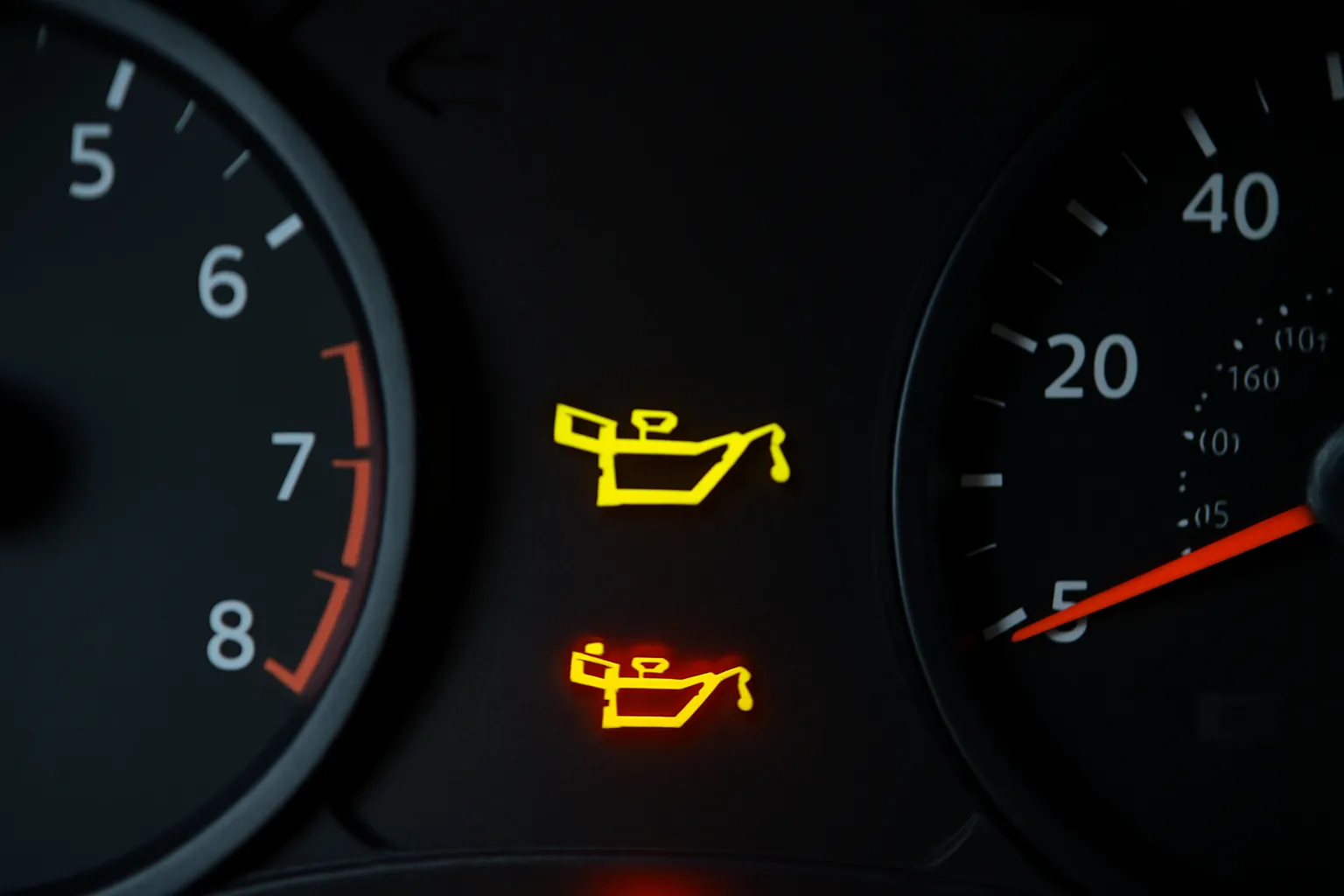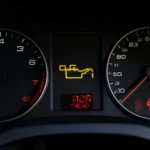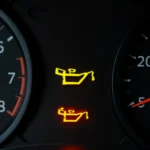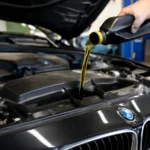Have you ever seen your car’s engine oil warning light flicker? What does it mean when that warning light flashes, and how should you respond? This guide covers everything you need to know about engine oil warning lights.
Understanding Engine Oil Warning Lights: Why They Matter
If you’re driving your car and suddenly notice the engine oil warning light flickering, it’s not something to ignore. This light is one of the most important indicators on your dashboard, signaling whether there is an issue with your vehicle’s oil level or pressure. Engine oil is essential to ensure your engine runs smoothly by reducing friction and preventing overheating. When the oil level or pressure is low, the engine oil warning light is triggered, urging you to take action.
Understanding why the engine oil warning light flickers, rather than staying on constantly, can save your engine from long-term damage. In most cases, a flickering light indicates that the oil pressure is unstable or low, and it may require an immediate check to avoid major engine problems.
The engine oil warning light is typically an oil can icon, often illuminated in yellow or red, depending on the severity. When it flickers, it means the system is detecting fluctuating oil pressure, which may suggest that the oil is either too thick, too thin, or the oil pump is not functioning properly.
When the engine oil light flickers, it’s crucial to check the oil levels immediately. Make sure your car is parked on level ground before doing so. If the oil level is low, top it up. However, if the oil is at the correct level and the warning light is still flickering, it may be a sign of more serious issues, such as a failing oil pump, a clogged oil filter, or an oil pressure sensor malfunction.
Why does the warning light flicker instead of staying on constantly?
The flickering usually happens when the oil pressure is momentarily dropping or fluctuating. This could be caused by many factors, such as a bad oil pump, clogged oil passages, or simply low oil levels.
👉 Learn More about Engine Oil Warning Lights 👈
Engine Oil and Highlights Turned On and Off: What Does It Mean?
When your engine oil warning light turns on or off, it serves as a signal for the condition of the oil system in your vehicle. A “turned on” engine oil warning light typically suggests an issue that needs immediate attention, such as low oil pressure, a low oil level, or a malfunctioning oil pump. In some cases, if the oil is too dirty or the oil filter is clogged, the warning light may also illuminate.
On the other hand, if the engine oil warning light turns off, it may indicate that the issue has been resolved or that the car has corrected the problem on its own. This could happen if you’ve topped up the oil or if the oil pressure stabilizes after a brief fluctuation.
However, don’t simply assume everything is fine just because the light has turned off. If the warning light turned on and then turned off after a short period, it’s a sign that there may still be an issue at hand. A quick flicker or a brief on/off cycle could be caused by a faulty sensor or an oil pump that isn’t working as it should.
It’s essential to pay attention to the timing of the light’s behavior. If the light flickers while you’re driving at high speeds or when the engine is hot, the oil pressure could be insufficient to keep the engine running optimally, potentially leading to overheating or engine wear.
What should you do if the engine oil light turns on, then off?
-
Don’t assume it’s safe. Keep an eye on the oil pressure.
-
Check the oil level immediately.
-
If the light keeps flickering or turning on and off, have the system inspected by a mechanic.
👉 Find Out Why Your Oil Light Flickers 👈
Engine Oil Warning Light Flickers: What You Need to Know
A flickering engine oil warning light is a cause for concern. The key question to ask yourself when this light flickers is, “Is this something I can drive through or do I need to stop immediately?” There are several reasons why this light may flicker, each with varying degrees of severity.
The most common reason is low oil pressure. Oil pressure can drop due to a variety of reasons: low oil levels, oil pump failure, or a clogged oil filter. If your oil light flickers during acceleration or when the engine is at idle, this could be a sign that the engine is not receiving adequate lubrication, which can lead to severe damage.
Another possibility is a faulty oil pressure sensor. The sensor is responsible for detecting oil pressure and sending signals to the dashboard. If the sensor is malfunctioning, it could cause the light to flicker intermittently, even if the oil pressure is fine.
Lastly, the type of oil you are using could be a contributing factor. Thicker oils, such as high-viscosity oil, can cause the pressure to drop if the engine is running hot, leading to a flickering oil light.
What should you do if the oil light flickers?
-
Stop driving immediately if the oil pressure is low.
-
Check the oil level and top it up if necessary.
-
If the light continues to flicker after checking the oil, it’s time to visit a mechanic to check the oil pump, pressure sensor, and other potential issues.
-
Do not ignore the flickering light, as ignoring it can lead to costly repairs and engine failure.
👉 Find Solutions for Engine Oil Warning Light Flickers 👈
Conclusion: Don’t Ignore Your Engine Oil Warning Light
The engine oil warning light is your car’s way of telling you that there might be an issue with your engine’s lubrication system. Whether it flickers on or off, it’s important to understand what that warning light means for your vehicle. Always check your oil levels regularly and make sure the system is functioning correctly.
If your engine oil warning light flickers, don’t panic, but do take it seriously. Low oil pressure can cause serious engine damage if left unchecked, so it’s important to respond quickly. Topping up the oil, replacing a faulty sensor, or addressing a worn oil pump are all possible solutions to consider when faced with this issue.
Remember: a healthy engine oil system is crucial for maintaining the performance and longevity of your vehicle. If the oil light flickers, get it checked as soon as possible.
“Take care of your car, and it will take care of you.”






